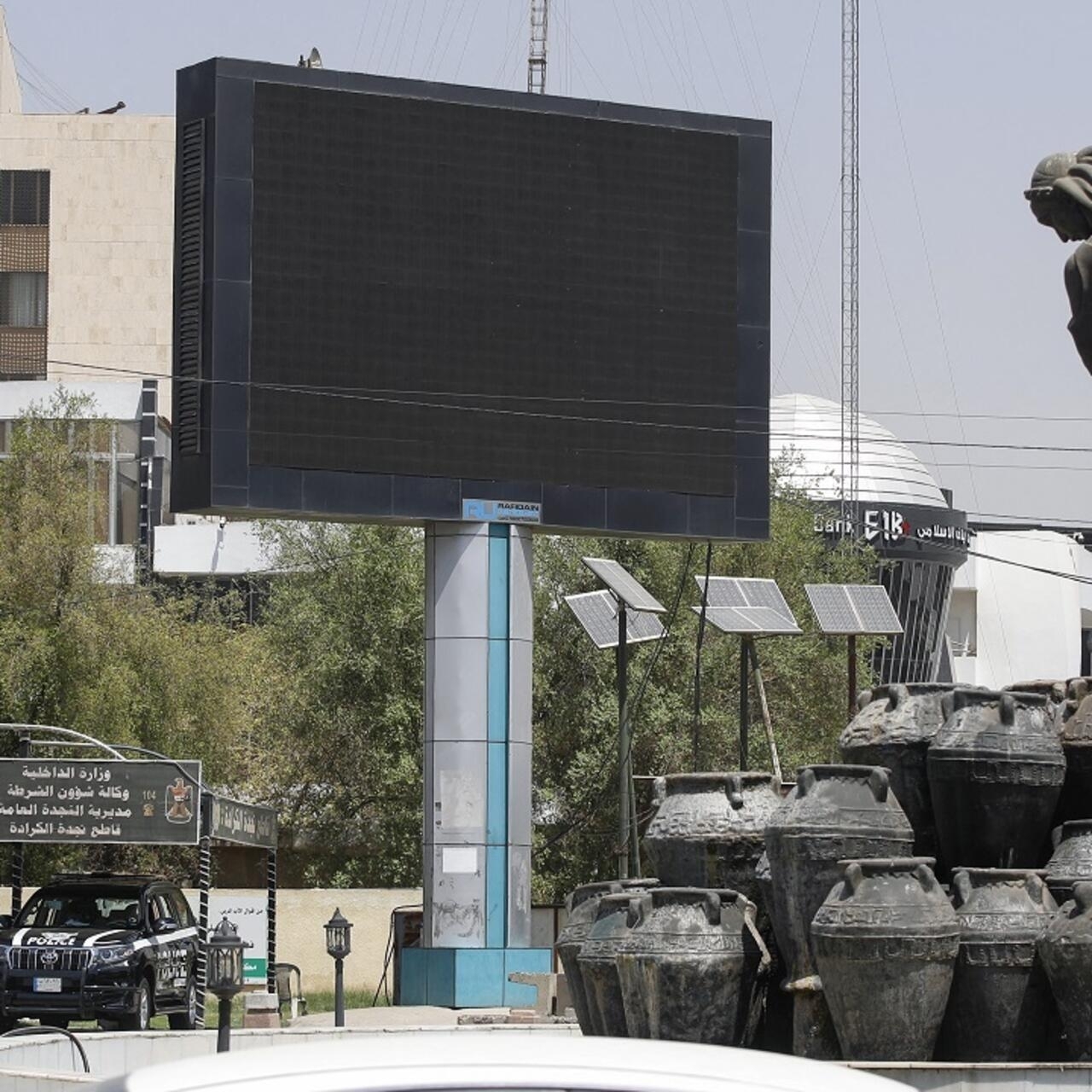Iraq Shuts Down Electronic Billboards After Hacker Displays Porn In Baghdad
Iraq shuts down electronic billboards after hacker displays porn in Baghdad. The hacker broadcasted pornographic footage on one of the screens in Uqba bin Nafeh Square which has left the local community in shock and has raised concerns about cyber vulnerabilities and public decency.
Author:Raven NoirReviewer:Morgan MaverickAug 22, 20233.7K Shares92.1K Views

Iraq shuts down electronic billboards after hacker displays porn in Baghdad.The hacker broadcasted pornographic footage on one of the screens in Uqba bin Nafeh Square which has left the local community in shock and has raised concerns about cyber vulnerabilities and public decency.
Electronic Billboards In Baghdad Switched Off After Pornographic Content Aired
The startling incident happened on a busy thoroughfare in central Baghdad. According to Shafaq News:
“„Iraqi security authorities decided to temporarily turn off screens displaying advertisements in public places in the capital, Baghdad, after they were subjected to electronic hacking and immoral clips were displayed in public.- Shafaq News
The immediate fallout of the incident led to the arrest of a man by the police, following the broadcasting of the explicit material.
The ministry’s Federal Intelligence and Investigation Agency, in a statement released on their Facebook page.
“„The Federal Intelligence and Investigation Agency, after obtaining judicial approvals and through field work, auditing, and monitoring of surveillance cameras, was able to arrest the accused who carried out the hacking.- Federal Intelligence and Investigation Agency
Diving deeper into the motives behind the scandalous act, the agency revealed details about the offender's rationale. The statement added, “Following preliminary investigations, the accused man suggested that he had committed this immoral act due to financial problems with the owner of the company that owns the display screen.”
While some digital boards have been reactivated, the extent of the screens that are operational remains unclear. CNNhas confirmed that not all the screens are currently functioning.
This incident adds another layer to the ongoing discourse on cyber morality and content regulation in the nation. Last year, the Iraqi government made announcements of their intention to block porn sites. However, the effectiveness of this policy remains under scrutiny.
Furthermore, in a move to monitor and regulate online content, the government launched a platform named “Report” this year. This platform empowers citizens to anonymously bring to light any “negative” or “immoral” content they come across online. Despite this, the government has been steadfast in asserting that such measures will not infringe upon the citizens' rights to freedom of expression.
Additionally, a recent directive from Iraq’s official media regulator has stirred conversations surrounding content regulation and freedom of speech. The Communications and Media Commission (CMC) has mandated media and social media firms operating in Iraq to replace the term “homosexuality” with “sexual deviance.”
The term “gender” has also been prohibited. The edict applies to all phone and internet companies that have received licenses from the CMC, barring them from using the aforementioned terms in any of their mobile applications.
Iraq, while not criminalizing gay sexoutright, has, in the past, utilized vague morality clauses within its penal code to target members of the LGBT community.
Conclusion
In light of recent incidents and directives, it remains to be seen how Iraq navigates the challenges of cyber vulnerabilities, content regulation, and upholding the rights of its citizens in the digital age.

Raven Noir
Author
Raven Noir is a captivating and enigmatic news reporter who unravels mysteries with a relentless pursuit of truth. Possessing an insatiable curiosity and an astute mind, Raven delves into the depths of complex stories, unearthing secrets that lie beneath the surface. With a masterful grasp of deduction and observation, Raven stands as a beacon of fearless investigation.
In the realm of journalism, Raven is known for his enigmatic presence, drawing people in with an aura of intrigue. Driven by an unwavering passion for unveiling the truth, Raven Noir continues to shed light on the darkest corners of society. Through captivating storytelling and unwavering determination, he challenges conventions and uncovers enigmatic secrets that lie just beyond the surface.

Morgan Maverick
Reviewer
Morgan Maverick is an unorthodox news reporter driven by an insatiable hunger for the truth. Fearless and unconventional, he uncovers hidden narratives that lie beneath the surface, transforming each news piece into a masterpiece of gritty authenticity. With a dedication that goes beyond the boundaries of conventional journalism, Morgan fearlessly explores the fringes of society, giving voice to the marginalized and shedding light on the darkest corners.
His raw and unfiltered reporting style challenges established norms, capturing the essence of humanity in its rawest form. Morgan Maverick stands as a beacon of truth, fearlessly pushing boundaries and inspiring others to question, dig deeper, and recognize the transformative power of journalism.
Latest Articles
Popular Articles